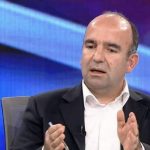The battle for Ukraine is increasingly cast as a contest of democracy versus dictatorship.
The theory is that if Vladimir Putin is the problem, then democracy is the solution. If only elections took root in Russia, peace would break out worldwide.
But the conflicted reactions of countries around the world — some leading the charge for sanctions, others running for diplomatic cover — suggests democracy is no proxy for peacemaking.
True, an elected government that is accountable to its people rarely wages war on neighbouring peoples. The historic post-war peace among Western European democracies has endured for decades.
Elections, however, are not elixirs. The power of the people is no panacea for peaceful foreign policy, or a pathway to international solidarity — as the American-led invasion of Iraq attests.
To be sure, Putin’s unprovoked invasion shows the perils of unconstrained power. But the unpredictable reactions of so many other leaders shows the limits of democratic engagement.
Across Western and Central Europe (and parts of East Asia), the cohesion is impressive. But some of the most influential democracies around the world are still sitting on the fence instead of standing up for freedom and defending sovereignty.
From India to Israel, elected leaders are walking a fine line between doing right versus military might:
- India boasts of being the world’s biggest democracy, long espousing its Gandhian values of peace, non-violence and non-interference. Yet Prime Minister Narendra Modi has suddenly gone silent over the invasion, and India abstained from a UN vote condemning the invasion (as did neighbouring Sri Lanka and Pakistan).
- Israel styles itself the Middle East’s beacon of democracy, born in the aftermath of the Holocaust. But Prime Minister Naftali Bennett has decidedly lost his voice.
- Turkey imagines itself a democratic role model for the Islamic world and a bulwark of NATO. Yet President Recep Tayyip Erdogan is having it both ways.
- South Africa, an exemplar of post-apartheid pluralism and democracy, is siding with Russia. President Cyril Ramaphosa pointedly blamed NATO for provoking the invasion and also abstained from the UN vote.
Each of these outsized nations has long made a virtue of its foreign policy values, in good times and bad. Now, high-minded international principles of territorial integrity are captive of core national interests — and military armaments.
At military parades, Indian soldiers can be seen saluting proudly from Russian T-90 tanks that are a bulwark of its armed forces, which buys 60 per cent of its supplies from Moscow. But there are deeper historical ties that drove India into Russia’s arms — and armaments: China humiliated India in their 1962 war over disputed Himalayan territory in Kashmir, and bitter fighting breaks out in border skirmishes to this day.
“Indian foreign policy decisions are made in Indian national interest, and we are guided by our thinking, our views, our interests,” Foreign Minister Subrahmanyam Jaishankar told parliamentarians unapologetically when India abstained from the UN vote.
But as Putin finds himself isolated by foreign sanctions, and increasingly dependent on China for economic succour and military resupply, will he continue to re-arm India for future battles against his most important ally in Beijing? Russia will surely need China more than India.
That hasn’t stopped New Delhi from trying to bypass Western sanctions by conjuring up a new trading mechanism to exchange their respective currencies, the rupee and ruble (avoiding U.S. dollar transactions). Money talks, even if silence is golden.
Now, India’s diplomatic dance is being adopted by other democracies that find themselves caught in the middle.
South Africa’s Ramaphosa has been outspoken in defending Russia’s unprovoked invasion, insisting Putin was provoked. Like other democrats who are pulling their punches, Ramaphosa claimed he’d been asked to play the role of mediator — precluding any criticism.
A similar diplomatic cover story has been adopted by Israel’s Bennett. In truth, Israel is merely being mindful of Russia’s massive military presence in neighbouring Syria.
Erdogan, too, insists he is playing the role of peacemaker, albeit with more credibility. Turkey has hosted formal negotiations, seemingly untainted by ties to the supposed NATO culprit.
Turns out all those competing claims of mediation and conciliation are a convenient justification for safeguarding national interests. And all those recurring theories about the virtues of democracy and diplomacy are turning out to be an inconvenient myth.



